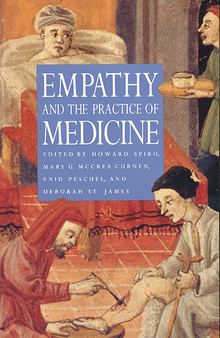Self-Determination Theory in the Clinic
WARNING
You are viewing an older version of the Yalebooks website. Please visit out new website with more updated information and a better user experience: https://www.yalebooks.com
Motivating Physical and Mental Health
Kennon M. Sheldon, Geoffrey Williams, and Thomas Joiner
Self-determination theory is grounded in the belief that people work best and are happiest when they feel that they are in control of their own lives. This invaluable book explains the ramifications of the theory and provides clinical examples to show that it can be used to motivate patients undergoing treatment for such physical or psychological issues as diabetes management, smoking cessation, post-traumatic stress, obsessive-compulsive disorder, and depression.
The first part of the book provides historical background to self-determination theory, showing that it is humanistically oriented and has three decades of empirical research behind it. In the process, the authors discuss why humanistic psychology fell out of favor in academic psychology; why “self-help” and New Age books have such perennial popularity; and why it is so important for authorities to support patients’ sense of self. The remainder of the book presents many specific case examples to describe the theory’s application.
The first part of the book provides historical background to self-determination theory, showing that it is humanistically oriented and has three decades of empirical research behind it. In the process, the authors discuss why humanistic psychology fell out of favor in academic psychology; why “self-help” and New Age books have such perennial popularity; and why it is so important for authorities to support patients’ sense of self. The remainder of the book presents many specific case examples to describe the theory’s application.
Kennon M. Sheldon is associate professor of psychology at the University of Missouri, Columbia. Geoffrey Williams is associate professor of medicine and psychology at the University of Rochester. Thomas Joiner is Bright-Burton Professor of Psychology at Florida State University.
"An interesting and insightful book that makes major strides in solving the intractable problem of promoting healthy behavior change. It was a pleasure to read."—Edward L. Deci, University of Rochester
"This book describes how self-determination theory can be applied in clinical settings, including both health care and mental health settings. I enthusiastically applaud this effort."—Holley Hodgins, Skidmore College
“In this fascinating marriage of humanistic and scientific psychology, Kennon Sheldon and his colleagues show how clinicians can harness people’s needs for autonomy, competence, and connection. By weaving theory, evidence, and engaging case studies, they show how the application of self-determination theory can enable healthier emotions and behaviors. This is clinical science at its best.”—David G. Myers, Hope College, author Intuition: Its Powers and Perils
"This book offers an excellent introduction to Self-Determination Theory, and how it can be used effectively in clinical practice. The volume covers concepts ranging from the experiencing self to self-actualization, and from autonomy to the ownership of behavior. The authors show how Self-Determination Theory can be used to help clients manage physical health problems, to overcome behavioral problems such as drug abuse and eating disorders and to tackle mood disorders such as depression and phobias. The authors provide the fresh insights of Self-Determination Theory to clinical practice in a clear and practical way."—Ed Diener, University of Illinois
“Motivation is so often the critical, and yet missing, ingredient in producing successful clinical outcomes. Sheldon, Williams and Joiner bring the practitioner’s role in facilitating motivation into the spotlight, and they reveal the key elements that activate and sustain people as they make those difficult changes that ultimately enhance health and daily living.”—Richard M. Ryan, University of Rochester
“Sheldon, Williams & Joiner provide practical and compelling accounts of how practitioners can facilitate patients’ self-motivation in health care and therapy settings. They illuminate those all too often neglected links between prescription and action, and between counseling and actual change.”—Richard M. Ryan, University of Rochester
ISBN: 9780300199833
Publication Date: May 28, 2013
Publication Date: May 28, 2013
224 pages, 6 1/8 x 9 1/4
2 b/w illus.
2 b/w illus.








